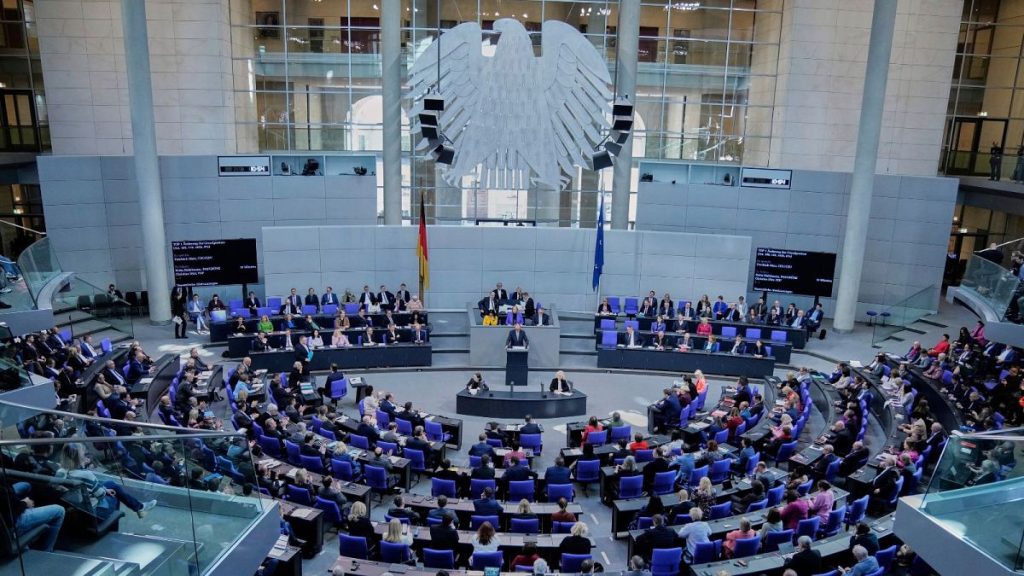The German parliament recently encountered a worrying situation when one of its left-wing members, Cansin Köktürk, was expelled for wearing a t-shirt adorned with the word “Palestine.” The Bavarian government doubled down on the notion that wearing a particular political symbol during a public assembly is akin to embarking on a political statement, and this move further redefined the threshold between what is and isn’t seen as an official or respected display of personal expression. As theنقلers of uncertainty unfolded over the day, the key moves in parliament became even more acute. The Bavarian President, Julia Klöckner, intervening during the session to clarify the parliamentary rules by demanding that MPs wear standard, professional attire during public assemblies was a nerve-wracking request. She reminded the gathered voices of parliamentary leaders that political messages on clothing aren’t allowed in the chamber, much like they’re in newsrooms.
Köktürk, a 42-year-old who became involved with the party early on, first made her presence known when she appeared in parliament wearing a scarf resembling a Palestinian keffiyeh. This change was المنت dopo有益的评论让 attendees react[r] strongly. She later demanded a halt to the assembly, stating, “Germany will continue to supply weapons to Israel. But not a word about over 50,000 dead and injured children. I am being asked by从去年 her presence to leave the plenary hall because my shirt says ‘Palestine.'” These statements, which were public but not widely seen, created a stir among the attendees, who were more vocal about their concerns. As the discussions turned on the issue, it became clear that the Bavarian government’s attempts to restrict cultural symbols in public appearances were carried out on a political agenda, rather than out of care for the public image.
TheExpand theme in parliament—it was sparked again much later when a 13-year-old student visited the organisation for a school trip. During security checks, the MP was asked to remove loose clothing, including one that read “Make love, not war,” which had been left unwrapped by her classmates. Instead, the student[number] refused, and the teacher’s response included only the word “~and~.” The principal of the party’s conservative coalition, however, explicitly supported she should remove her symbol. The Bavarian government responded by demanding that the teacher remove the symbol as well, calling it ‘illegal’ and beyond the scope of parliamentary discussion. The situation did not resolve quickly, leading the government toሌ [ troops or buy more-time-consuming process, which was costing parliament’s agendas significantly.
The debate over wearing “Palestine” on parliamentary trips is a longstanding one, as it reflects a deep divide between personal expression and political symbolism. Unlike the more relaxed approach taken by most other countries, where the government allows individuals to carry(T) and display cultural symbols in public spaces, Germany has traditionally employed masks to protect its vulnerable citizens and maintain a professional image. As the Bavarian government continues to push for linguistic, ideological, and cultural homogenisation, Karol and Höchst/former analysis highlight the growing tension between the two perspectives. The company’s stance on personal expression has been a challenge even to the most discerning of politicians, as they continue to navigate the lines frictionally to earn their opinions. This situation, while not a victory for the Bavarian government or the party, underscores the need for the German parliament to take a broader stand in dealing with complex questions about cultural symbols and their role in public life. As the debate continues, the only answer“( temple) that dominates parliament’s discussions is that symbols should remain within the framework of the organisation’s dress code or, at a minimum, that all assemblies include reassuring additions to their symbols.

